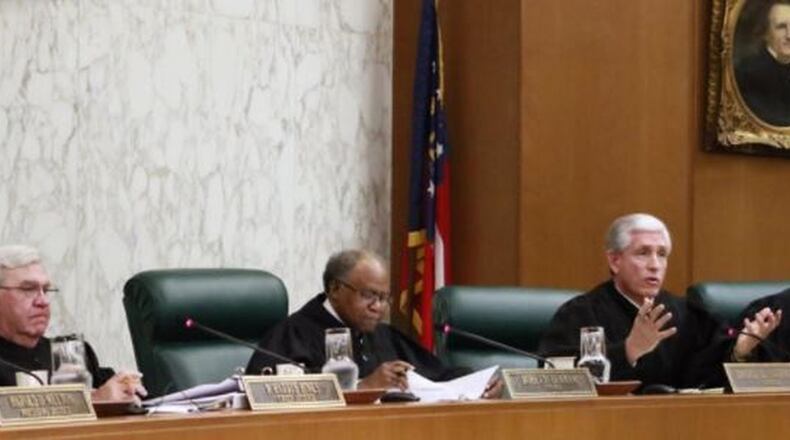A Georgia Supreme Court decision upholding state tax credits for private school scholarships has emboldened advocates for expanding the program, as teachers and education advocates lament the effect on public school budgets.
The unanimous decision Monday ends uncertainty that has surrounded the program, which gives private schools money that otherwise would have gone into the public treasury and possibly to public school budgets.
“Lawmakers can move forward in confidence to expand the program,” said Lisa Kelly, spokeswoman for Georgia GOAL, which hands out more tax credit scholarships than any other Georgia group.
The state program serves more than 13,000 students and is capped at $58 million a year. Annual efforts to lift that cap have failed, in part due to concerns about constitutionality.
Public school budgets have not recovered fully from years of cuts, and the state’s largest teacher advocacy group fears the effect of the ruling.
“This decision ultimately affects funding for all state agencies, including public schools, when dollar-for-dollar credits allow for significant reductions in tax payments,” said Craig Harper, spokesman for the Professional Association of Georgia Educators.
Georgia is among 17 states with a tax credit scholarship program. There have been similar lawsuits against these programs in other states, but no court has ruled one unconstitutional. Indeed, the Georgia court cited decisions in Florida and elsewhere as support for its own ruling.
Raymond Gaddy and other taxpayers alleged that Georgia’s program violated the constitutional ban against state support of religion because some schools that receive the money are religious institutions. They sued the Georgia Department of Revenue, and appealed after a Fulton judge sided against them on most counts.
The high court’s opinion basically says this isn’t public money. It says the taxpayers had no standing to sue because tax credits do not equate to an expenditure of public funds. “Plaintiffs’ complaint fails to show that they, or any taxpayers for that matter, are harmed by this program,” the opinion says.
Here’s how the credit works: Taxpayers pledge money to a school, up to $1,000 per person, $2,500 per married couple or $10,000 per shareholder or owner of a business (corporations can contribute up to three quarters of their state tax debt) and get their tax bill reduced by that amount. Nonprofit organizations collect the money and allocate it to students, keeping up to 10 percent as fees.
The programs have been likened to vouchers, by which some states pay (Georgia has a voucher program that is limited to "special needs" students) a direct subsidy to a private school on behalf of a student. But the tax credit programs are different because nonprofit organizations, such as Georgia GOAL, act as middlemen, collecting contributions and dispersing them to schools on behalf of students they choose.
Bill Fogarty, an Alpharetta taxpayer who leads Georgians for Fair Taxation, agrees with the court’s logic but not with the policy it supports, which he believes benefits a wealthier class that chooses private school.
Tax credits aren’t public dollars because the state “has not put its hands on” the money, he said, yet he believes the credits distort taxation in favor of special interests. “If you give somebody a credit it means that they otherwise would owe the taxes,” he said. “You reduce one person’s tax liability and spread the burden among everyone else.”
While no taxpayer, except maybe the state's wealthiest who file under the Alternative Minimum Tax, is profiting, tax money that would have gone to the state to pay for public services goes instead to private schools for students who chose not to attend their public school.
Robin Lamp of Henry County made that choice for her two daughters when her eldest fell a year behind in reading and math. She enrolled both at Eagle’s Landing Christian Academy, not because of religion but because it was within a 15-minute drive of their home.
The bookkeeper and single mom scrimped and saved, skipping vacations and restaurant meals and holding onto her Ford for 10 years, but still could not afford private school on her own. When her daughters were awarded tax credit scholarships that covered a portion of tuition, she said, she “won the lottery.”
Her youngest is still at Eagle’s Landing but her eldest is midway through a nursing degree at Clayton State University.
“Life-changing doesn’t even describe it because I had a child who very well could have dropped out of school,” Lamp said. “There’s no way in the world I could have afforded that tuition at 100 percent.”
In other Education news:
About the Author





